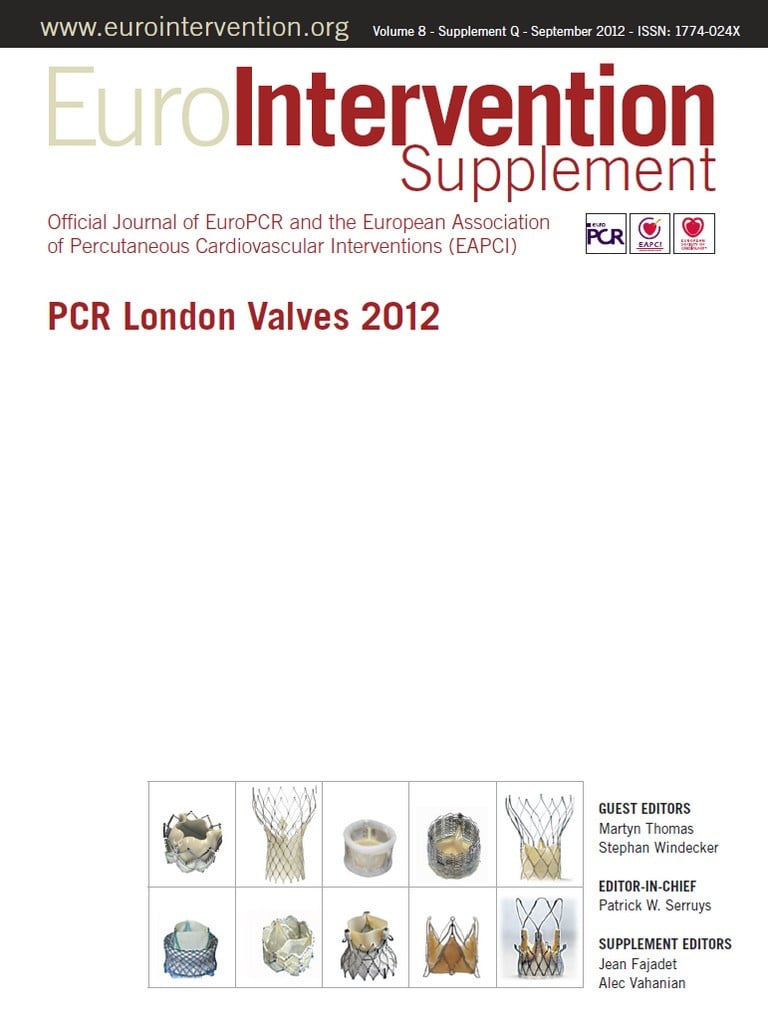![]()
Pot-pourri
Predictive factors of successful repeat percutaneous mitral commissurotomy for mitral restenosis after previous percutaneous commissurotomy
Aims: Several studies suggest that repeat percutaneous mitral commissurotomy (PMC) for mitral restenosis after a first successful intervention is safe and effective. It thus remains as a good treatment for this indication. The aim of this study was to identify the predictive factors of immediate results for repeat PMC to categorise the best candidates for this technique.
Methods and results: We retrospectively analysed data of 84 consecutive patients (mean age=30.88±12.24 years, female=81%) who have undergone a second PMC 48±23 months after a first successful PMC procedure. Among them, twenty-two (26.2%) were in atrial fibrillation. Echocardiography showed that 32.1% of the group had a Wilkins score ≤8 and 67.9% had a score >8, mean mitral valve area=1.09±0.2 cm² and mean of the mean gradient=14.8±6.6 mmHg. Mitral insufficiency ≤2 was noted in 44.6% of the cases. A good result of PMC was defined as a final valve area post PMC ≥1.5 cm² without a mitral insufficiency ≥2. A good result was achieved in 84.5% of the cases with an Inoue balloon. Valve area increased from 1.09±0.2 cm² to 1.79±0.3 cm². A severe mitral regurgitation occurred in six patients (7.1%). All of them required an urgent surgical valve replacement. Univariate analysis showed that the Wilkins score, mitral valve area and time of restenosis were the strongest factors associated with the immediate result. A Wilkins score >8 was associated with an odds ratio (OR) of 5.68 (95% CI, 0.78 to 41.5; p=0.034) for poor results. A mitral valve surface area <0.9 cm² was associated with an OR of 3.14 (95% CI, 1.2 to 8.19, p=0.028) for poor results. Compared with early restenosis, late restenosis, which is defined as a restenosis that occurs more than three years after the first PMC, was linked with an OR of 4.12 (95% CI, 0.97 to 17.46, p=0.027) with insufficient results. Finally, patients with pulmonary hypertension ≥55 mmHg tend to have less chance of a success rate than patients without (71.4% vs. 89.8%, p=0.052, OR=2.8, 95% CI, 1.01 to 7.76).
Conclusions: In conclusion, the anatomical criteria and the evolution of the disease were the strongest factors associated with the immediate result after repeat PMC. Patients in an unfavourable form and with advanced disease have less chance of benefiting from PMC. This should be taken into account when selecting candidates for repeat PMC.

